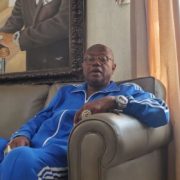— Sylvester Brown, The St. Louis American
“In this business, if you don’t adapt, you fail, huh.”
Ronald L. Jones has a unique way of using the word “huh.” For Jones, it’s more of an affirmation than a question. Like a preacher uses “Amen,” Jones employs “huh” to emphasize his points. In this case, he was discussing his trade in the wake of COVID-19.
“I’ve been through swine flu, Ebola, spinal meningitis, even active cases of tuberculosis, you name it. This is the first pandemic I’ve ever been through,” Jones said. “You just have to be very cautious about what you’re dealing with, huh.”
— Credits & Context
Featured Image: AP Slave Ships Productions Ltd./Cornelia Street’s Ships Ltd./EPIX
Full article @ The St. Louis American
RELATED: Is higher COVID-19 mortality in Black adults linked to essential work? | Medical News Today
A new study finds that performing many low paid but essential jobs puts people at higher risk of SARS-CoV-2 infection. It also finds that Black people in the United States are more likely to have these higher risk jobs. This could expose them disproportionately to a higher risk of infection.
— James Kingsland, Medical News Today
The research, which took place at the University of Utah in Salt Lake City, reveals that non-Hispanic Black people were more likely than non-Hispanic white people to hold occupations considered essential, meaning that they continued to work during state lockdowns.
Featured Image, JOSEPH PREZIOSO/AFP VIA GETTY IMAGES
Full article @ Medical News Today

